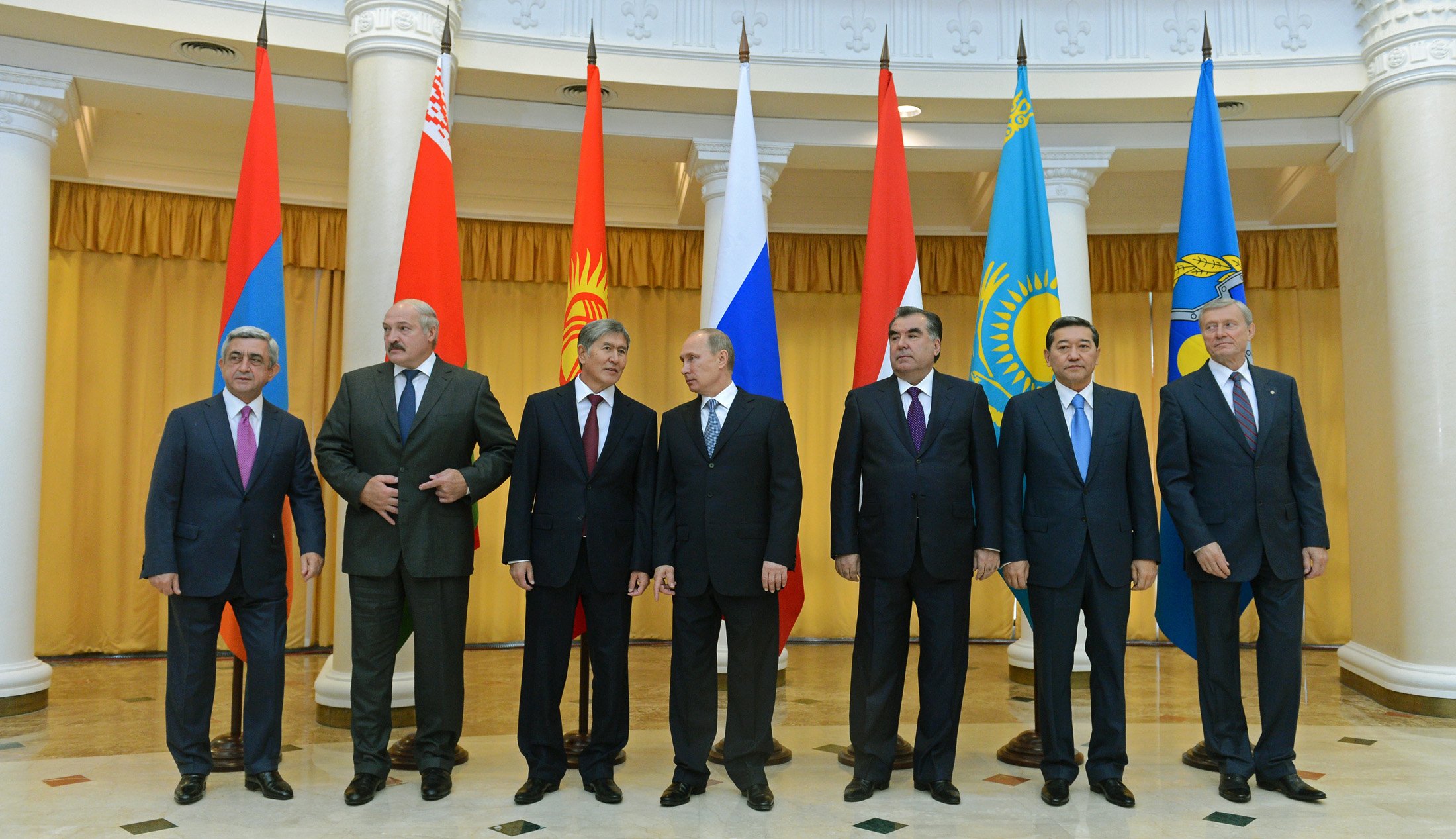CSTO evolves into the Holy Alliance of post-Soviet autocracies
 The situation has not changed
The situation has not changed

Yet another bargaining stage between the CSTO states has ended. The parties have come to a common conclusion that they need to counteract jointly internal political instability in the participating states. Economic challenges and growth in protest moods in the CSTO states have prompted them to such an agreement.
At the informal CSTO Summit held in Bishkek last week, Belarus resumed full-scale activity within the framework of the Organization. For instance, she stopped blocking the appointment of an Armenian representative as the new CSTO Secretary General.
Earlier, the appointment of the new Armenian CSTO SG was blocked twice. In October 2016, Nursultan Nazarbayev did not take part in the Summit under the pretext of being ill. In December 2016, a quorum could not be secured due to the absence of Lukashenka, who did not provide an excuse. Clearly, in addition to the symbolic gesture of support for Azerbaijan, a strategic partner for Kazakhstan and Belarus, sabotaging the new CSTO Secretary General appointment has become an outward manifestation of the behind-the-scenes negotiations among Minsk, Astana and Moscow.
Arguably, the CSTO member states have united in order to counteract the so-called “colour revolutions”. Namely, Vladimir Putin, after meetings with the leaders of Kazakhstan, Kyrgyzstan and Belarus, said that Russia would assist the CSTO states in retaining domestic political stability. The CSTO autocracies (4 of 6 participating states) deny the right and capacity for their citizens to publicly protest and change the government, believing that such an action could only be prompted from the outside. “Colour revolutions” are regarded as a complex instrument of external aggression by non-military means.
Clearly, the CSTO has not materialised into a full-fledged military alliance. And, as it often happens in the post-Soviet space, it has found a different niche, evolving into a modern analogue of the Holy Alliance of European Absolutist Monarchies of the 19th century. That said, this has ended the ambitions of the CSTO leadership to acquire international legal personality for the organisation. Further, the CSTO is likely to focus on ensuring internal security of political regimes in the participating states, evolving into a gendarmerie rather than a military union.
Subscribe to our newsletter




Situation in Belarus
Constitutional referendum: main consequences


 Video
Video
How to count the political prisoners: are the new criteria needed?


 Video
Video
Paternalism In Decline, Belarusian Euroscepticism, And The Influence Of Russia


 Video
Video











